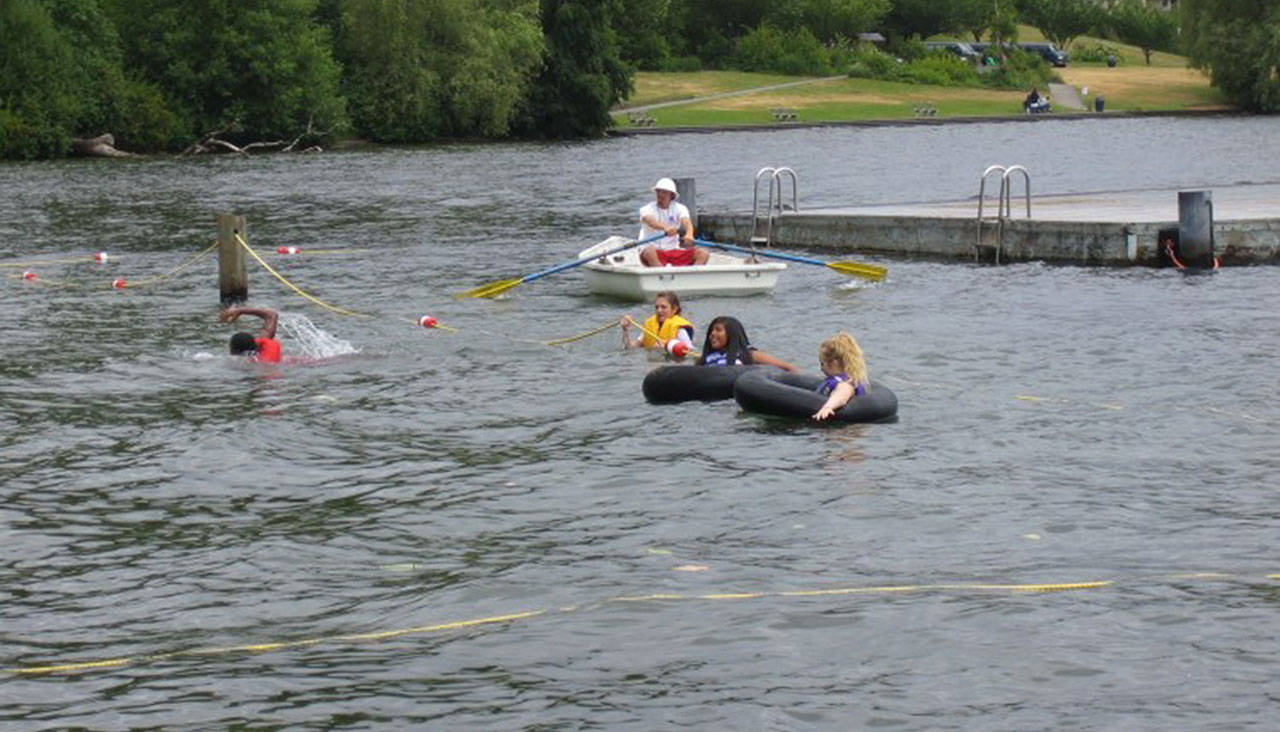The following was written by Hilary N. Karasz for Public Health Insider:
According to climate scientists, chances are it’s going to be a hotter summer than typical across King County. Hot weather brings people out to our region’s lakes, rivers and salt water areas looking to cool off and have fun. But the more folks flock to beaches and rivers, the higher the likelihood that more people will drown, both fatally and non-fatally. There have been seven child and youth drowning deaths since 2015. In 2018, 16 people lost their lives on King County waters. The Insider sat down with Tony Gomez, Public Health’s Violence and Injury Prevention Manager, to learn five simple tips to stay safe this summer at area beaches and rivers:
Swim only at lifeguarded beaches
According to Tony, it’s easy to miss the signs of a drowning person. It can happen without a sound: For children and adults who are not strong swimmers and even with better swimmers, drowning can happen quickly and without drawing notice.
Lifeguards are trained to recognize if a swimmer is at risk or in distress so they can react quickly and save their life. That is why a lifeguarded beach is one of the safest places to go swimming. We are lucky to have many in the King County area. Check before you go though, because some beaches that had life guards in past years will not be lifeguarded in 2019. This includes Steel Lake in Federal Way, Lake Sammamish State Park in Issaquah and several Mercer Island swim beaches, including Luther Burbank Park. On the plus side, Angle Lake Beach will have lifeguards for the first time in several years!
Strengthen your skills with free or reduced-price lessons
Many lifeguarded beaches in King County offer free or reduced price swim lessons, both during the day and in the evening. If you cannot make it to any of the life guarded beaches, you can also ask your local pool or aquatic center if they offer scholarships or reduced-price lessons throughout the summer. Insider tip: Indoor pools are often less crowded in the summer than the beaches, so they are a great way to beat the heat and the crowds!
Always wear a life jacket
A life jacket. Think about those words. A life jacket does just that – it saves your life. A U.S. Coast Guard approved life jacket is essential if you are on a small craft or open water. Of the 47 open water drowning deaths in King County, between 2014 and 2018, all or nearly all the fatal drownings likely would have been prevented if the victim had worn a life jacket. Don’t own a life jacket? Good news, you can borrow life jackets for free at Washington state life jacket loaner program locations all over King County.
Do not consume alcohol or drugs in or near water
Half of King County drowning deaths in 2018 and 70 percent in 2017 involved alcohol, other drugs or both. These substances impair judgement, balance, skills, ability to discern danger for individuals or others and resuscitation response. A person who is drinking or using drugs should never be responsible for watching children near or in the water: A sober adult should always keep children within arm’s reach.
Be extra cautious on the river
Rivers are very dangerous places to swim because of their cold, rushing waters, and unexpected obstructions and waterfalls. Because it is easy to be tossed around in the water and hit a hard object, swimmers are at risk of becoming temporarily numbed or paralyzed and losing the ability to swim well in already unpredictable waters. Your best bet is to avoid swimming in rivers altogether. If water recreation in a river is the only option, it is important to wear a U.S. Coast Guard approved life jacket and/or go with licensed river guides.
A last word from Tony
Let’s all make the rest of 2019 among the safest years on King County rivers and fresh and salt water beaches. We had a three-year period in King County between 2011 to 2014 without a child or youth under 18 years of age dying by drowning. We can achieve this again. Swim only at life guarded beaches. Strengthen your swim skills, cool off and have fun while getting some great exercise. Don’t mix alcohol and drugs with swimming. Wear a life jacket when boating, paddling, rafting or inner tubing. Respect rivers and their risks, and remember that sometimes the best decision is to stay out. And learn more about staying safe in the water by visiting Public Health – Seattle & King County Water Safety’s website.


